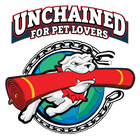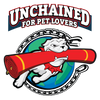Simple Tips to Reward Your Dog
It's no secret that dogs love nothing more than pleasing their owners. After all, they aren't known as "man's best friend" for no reason. This may be why positive reinforcement is so effective at training dogs, young and old. Reinforcing good behavior, while simultaneously breaking bad habits, works much better than constantly trying to discipline your pup for things he does that you don't approve of, like using your area rug for a potty break. There are countless ways to make training your dog fun and effective; the trick is finding the one that motivates him the most. Check out these simple rewards to help your furry friend be the most well-behaved dog you know.
Treats
Food is the most obvious reward for an obedient dog. Treats make good rewards for many reasons. They're convenient to carry in your pocket and hand out quickly when your dog does what you ask him to do. They also are the perfect reward if you are trying to get your pup to repeat an action over and over again quickly. Best of all, dogs love them. However, treats do have their downside. They may not be the best option for dogs who have allergies, are overweight, or have digestive issues. Likewise, you may not always have a treat readily available when you need your dog to behave. For these reasons, it's best to only use treats for a short period of time when training and combine them with other reward systems. By doing this, you'll eventually be able to eliminate the treats altogether and still be able to reinforce good behavior when necessary.
Attention
Nothing is more rewarding to a dog than quality time with his owner. Snuggling, petting, and praising can all be used to let your dog know that he is doing something right. To use attention as a type of reward, wait until your dog approaches you to be petted. Instead of immediately giving him a pat, try giving him a command first. Ask him to "shake" or "lie down." When he responds appropriately, reward him with your undivided attention and plenty of affection. If he doesn't respond, walk away from him and try again a few minutes later. Be sure not to give in until he catches on to what you're asking. Soon he'll know that performing certain actions will get him the attention he craves.
Playtime with Friends
Dogs are social creatures. They love to play with humans and other animals alike. Because of this, playtime with other dogs can also be used as a type of reward. Bring your puppy to a friend's house or dog park for a play date. Before letting him out of the car, ask him to "sit" or "wait" until you give him permission to run to the other dogs. Be patient and don't give in until he does what you asked him to. He'll quickly learn that to play with friends he must be a good listener.
Outside Time
A trip to play and explore outdoors can also be used as a reward in your dog's training program. This works particularly well when trying to potty train your pup. Bring your dog where you'd like him to go to the bathroom. Keep him in the same spot and don't let him play or explore until he has done his business. If he refuses to go, bring him back inside and try again a little while later. When he does relieve himself, reward him with lots of praise and take him for a walk. Be sure to let him explore and sniff as much as he wants. Soon your dog will learn that to go on a walk, he must first use the bathroom outside.
Toys & Games
Incorporating a favorite toy or game into your positive training routine can help limit the number of treats you're dispensing as well as keep things exciting for your pup. Making your dog work for a toy by quickly executing your request can be fun for him and a teaching moment for you. Try playing a game while you practice good behavior. One way of doing this is by giving your dog his toy and start playing together. While you're tugging the toy back and forth or wrestling around, tell your dog to "drop it." Next, command him to "lie down" or "sit." When he responds appropriately, praise him and give him his toy back. Repeating this process frequently will reinforce his good behavior and will help you get him to respond quickly every time.
Tips for Positive Reinforcement
- Keep Things Simple: Make sure your commands are clear and concise. If your commands are overly complicated, your dog won't be able to understand what you're asking him to do. For example, instead of saying "go fetch your toy," simply say "fetch."
- Be Consistent: Consistency is key to having a well-trained dog. Avoid sending your dog mixed messages by rewarding him for staying off of your bed one minute and then inviting him onto it the next. Likewise, it's important that everyone in your home is on the same page about what is acceptable for your dog to do and what isn't.
- Continue to Correct Your Dog: Just because you are striving to train your dog with a positive reinforcement routine doesn't mean that you shouldn't continue to correct him when he does something wrong. When your pup misbehaves, it's necessary to tell him "no" and stop the bad behavior as quickly as possible.
Training your dog may seem overwhelming, however, with a few simple commands, thoughtful rewards, and a consistent routine, your pup will soon be the most well-trained pet in the neighborhood. As with any teaching experience, there are sure to be a few bumps along the way. If housetraining your dog has left your carpets and upholstery soiled, Truck Mount Forums is here to help. We are committed to providing exceptional service and fast results to each of our customers. Contact us today to see how we can have your home looking good as new in no time!

